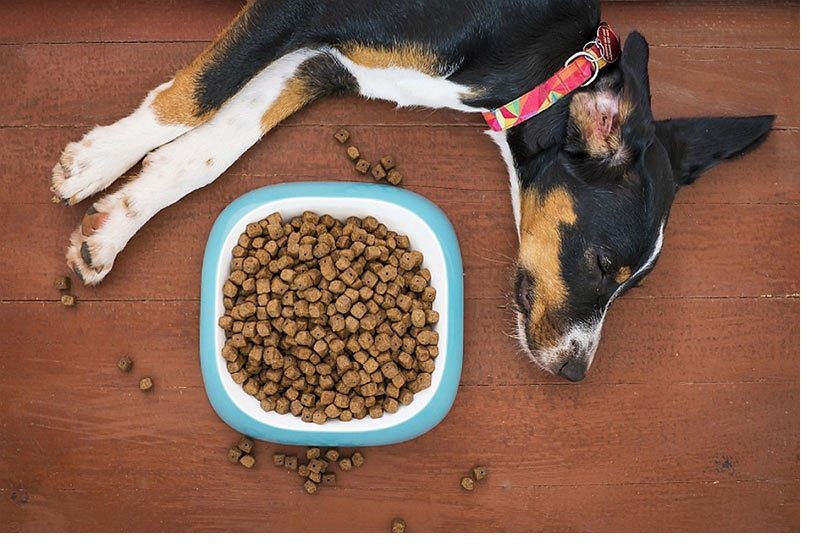Stay clear of the 4D’s.
 When quality cannot be compromised, stay clear of the 4D’s.
When quality cannot be compromised, stay clear of the 4D’s.
When I made the decision to move to raw dog food diets for Oden and Loki, even before I started Brown’s Best, I was doing so in-order-to improve both their health and their intake of high-quality ingredients, and to reduce the high-cost of veterinary care I had fallen in to (which are gone now). I thought about this a great deal. I’ll put it in perspective this way, my dogs are my family, and my family needs to eat the best foods. We don’t skimp on our loved ones, Oden and Loki should have the best.
It’s surprising what might pass for quality. Some dog foods utilize what are known as “4D meats.” It’s not something anyone is going to be actively talking about. But do a little research and you’ll realize, there are definite dangers associated with such products. “4D meats” are harvested from cows or other animals that have already Died, are Dying, come from Diseased animals, or animals that are Down (out in the field, or on the farm). Interestingly, “4D meat” is used against guidelines stipulated by the Food and Drug Administration. I’m not sure why this violation gets ignored, but I bet it has a lot to do with cutting corners, saving money, and maintaining profitability. Not good. Don’t get me wrong, profit is very important, I’m a business owner after all, but profit should come because you’re providing a superior product that customers feel good about buying.
I was watching an old episode of “Dirty Jobs” with Mike Rowe last weekend. On the show, he was covering work at a “rendering plant.” The episode began with Mike and a co-worker loading deceased cows onto a truck. While this is a necessary part of farming because farmers need to keep their healthy herds and poultry safe and free from disease – it was alarming to know that these animals were at the first stage of their journey to become dog food components. I get that rendering plants need to make money and are providing what I do believe is a necessary method of disposal. But it should be just that, disposal. As the episode progressed, the viewers were shown breakdown of the animals, and how rendered product is transitioned to prep for shipment to vendors. All I could think about was that I wouldn’t want Oden or Loki eating anything that came from this plant. Again, this is no knock on the very important people who run these plants, I’d just like to see these plants focus instead on non-consumable opportunities for the output they create – something I would gladly help set up a study commission on.
In the end, put it in this perspective; you wouldn’t ever feed your child something that was questionable and if you found out something was wrong with the products you were buying, you’d take-action. So, when it comes to 4D meats, take action. Here are some things you need to pay attention to:
- In many instances, 4D meat can include animals that had cancer or other types of tumors and/or worm-infested hearts, lungs, or other organs
- 4D meat can often-times be filled with chemicals, charcoal, or other agents that really should be kept out of consumable product
- The risk of exposure to potentially dangerous medicines – antibiotics, steroids, and agents used to put down dying or diseased animals – is high. In my research, I have found that such elements are not eliminated from the meat products at rendering plants.
- BHA (a potential carcinogen for humans and animals), BHT (a potential carcinogen for animals), and other preservatives have a high-exposure risk in rendered meats and while there is potential benefit as these elements are antioxidants, what’s the risk-reward?
- Dog food brands don’t advertise that they incorporate rendered meats into your brand of kibble. You’ll have to do your own research
What do you need to look for going forward? Again, you’ll have to be your own detective at this point as you evaluate your current feed and the options that are out there to switch over to:
- Check labels carefully. If you see the word “inspected” it doesn’t equal “approved”
- Take note of the brands that tell the whole story. I’m not asking you to ignore a brand of food your dog likes but I am asking you to pay attention to those brands that seem to skirt the idea of 4D meats in their product
- Look at price. Again, I know that right about now, being cost conscious is critical, but product price can often be a clear indicator that you’re buying potential 4D meat products
- Where a brand says they offer human-grade feed, ask, confirm, challenge

